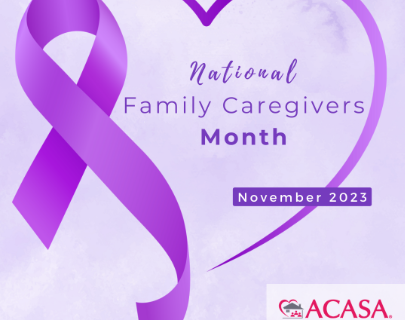National Cancer Prevention Month – February 2024
National Cancer Prevention Month marked every February is upon us, ushering in yet another opportunity to spread the word and take action in order to live better, healthier, and happier lives. Cancer, said to be the world’s leading cause of death, caused nearly 10 million deaths in 2020. Throughout the history of mankind, cancer has been in existence. Although not much was known about the human body, the earliest evidence was recorded via papyri that can be traced back to ancient Egypt in 1500 B.C. when tumors were found on the breast. Over the years, although no cure has been found, with landmark achievements recorded, we are closer than ever.
HISTORY OF NATIONAL CANCER PREVENTION MONTH
The human body comprises several cells that grow and divide, giving room for new cells when the need occurs. An invasion of this normal process is what leads to cancer.
From time immemorial, cancer has been with humanity, affecting people across the world regardless of their race, age, sex, or status. Its saddening grip caused an upscale over the recent decades due to modern lifestyle adoptions. Smoking, a poor diet, and the lack of exercise have contributed to its rise.
Given most narratives, evidence of cancer was first found in fossilized bone tumors of mummies in ancient Egypt. However, the word ‘cancer’ finds its origins in Greek. In 460 B.C. — 370 B.C., ancient Greek Physician, Hippocrates, the ‘Father of Medicine,’ referenced in his Hippocratic Corpus, comprising about 60 medical works, the name ‘cancer,’ ‘karkinoma — ‘crab’ in Greek, because the appearance of a tumor was likened to a crab.
1500 B.C. saw the first-ever recorded case of breast cancer in ancient Egypt. By the late 19th century, Edwin Smith and George Ebers’ “Papyrus,” with descriptions from the 1600 B.C., drawings from early sources, contained an overview of the earliest descriptions of cancer, including surgery and treatments ranging from pharmacological and mechanical, to magical. This led to differentiating between benign and malignant tumors.
There are more than 100 types of cancer, with some more popular than others. Examples are: lung (2.21 million cases), breast (2.26 million cases), rectum and colon (1.93 million cases), skin (non-melanoma) (1.20 million cases), stomach (1.09 million cases), and prostate (1.41 million cases) are the top five most common, according to the World Health Organization.
NATIONAL CANCER PREVENTION MONTH TIMELINE
1600 B.C.
The Earliest Record of Breast Cancer
The Edwin Smith papyrus shines the light on breast tumors in ancient Egypt.
460 B.C. — 370 B.C.
The Origin of the Word ‘Cancer’
Credited to Greek Physician Hippocrates, it originates from the Greek word ‘καρκίνος,’ or ‘karkinos,’ translated as ‘crab’ or ‘crayfish,’ owing to the appearance of the tumor.
1500 A.D.
The First Recorded Case of Cancer
Advancement in the understanding of cancer has been witnessed, and by this time, the first documented case is documented — eight tumors occurring on the breast.
1761
The Foundation For Oncology Is Laid
Italian anatomist Giovanni Morgagni lays the foundation for scientific oncology, the study of cancer.
1882
The World’s First Radical Mastectomy Is Performed
U.S surgeon William Halsted pulls off the first-ever radical mastectomy involving the removal of the breast, muscles, and axillary lymph nodes.
1895
The First X-ray Is Taken
On November 8, German scientist Wilhelm Conrad Röntgen discovers X-rays and this groundbreaking discovery has benefited various fields since.
2020
A Revolutionary Lung Drug Is Made Available
The antimalarial drug Sotorasib is made available by the N.H.S., and patients in England first benefit from the revolutionary new drug that can halt the growth of tumors.
NATIONAL CANCER PREVENTION MONTH FAQS
Is cancer always terminal?
Any type of cancer can become terminal when it can’t be cured and refuses to respond to treatment, leading to death. This is also called end-stage cancer.
Why does cancer happen?
It results from changes in D.N.A. When abnormal cells become uncontrollable in any part of the body and invade other tissues, cancer happens.
What is National Cancer Prevention Month?
Held annually every February, the initiative aims to raise awareness about cancer and spread awareness about the importance of early detection, which is paramount to its prevention.
HOW TO OBSERVE NATIONAL CANCER PREVENTION MONTH
- Donate
Your donations can help make a world of difference. They boost research, subsidize the cost of treatment, and spread the word about cancer. - Go out and spread the word
Don’t just arm yourself with information. Spread the word, and empower others with vital information, prevention tips, and risk factors, e.t.c. - Cut the statistics
One-third of cancers can be prevented. Take action by embracing healthy living: avoid tobacco, cut down on alcohol, maintain a healthy weight and exercise, limit your radiation exposure, and get vaccinated.
IMPORTANT FACTS ABOUT CANCER
- Early detection and screening is key
Cancer is deadly, but the good news is thousands of cancer cases, and deaths can be prevented through early detection and screening. - Cancer is a leading cause of death
In 2019, cancer was said to be the world’s second leading cause of death, with breast (2.26 million cases) and lung (2.21 million cases) being the most common types of cancer, according to the WHO. - Cancer research has decreased death rates
More effective cancer treatment has decreased the death rate according to the American Cancer Society and, more specifically, lung cancer. - Smoking increases your risk of lung cancer
] The most effective preventative measure against the disease is to stop smoking. The more cigarettes you smoke, the higher your risk. - February 4 marks World Cancer Day
Founded in 2000 and led by the Union for International Cancer Control (U.I.C.C.), the day aims to increase global awareness about cancer and save many from suffering and death
WHY NATIONAL CANCER PREVENTION MONTH IS IMPORTANT
- Prevention is key
It reminds us to make healthy choices, note risk factors, and decrease the chances of the disease by maintaining a healthy lifestyle. Our lifestyle choices go a long way. - Stay on a top progress report
The day reminds us to stay up to date with cancer updates, research, progress reports, and new developments. Cancer, directly and indirectly, affects us all. - It reminds us to value ourselves
Amid the hustle and bustle, National Cancer Prevention Month reminds us that health is wealth. We do need to take our health seriously to stay alive.
NATIONAL CANCER PREVENTION MONTH DATES
| Year | Date | Day |
|---|---|---|
| 2024 | February 1 | Thursday |
| 2025 | February 1 | Saturday |
| 2026 | February 1 | Sunday |
| 2027 | February 1 | Monday |
| 2028 | February 1 | Tuesday |


